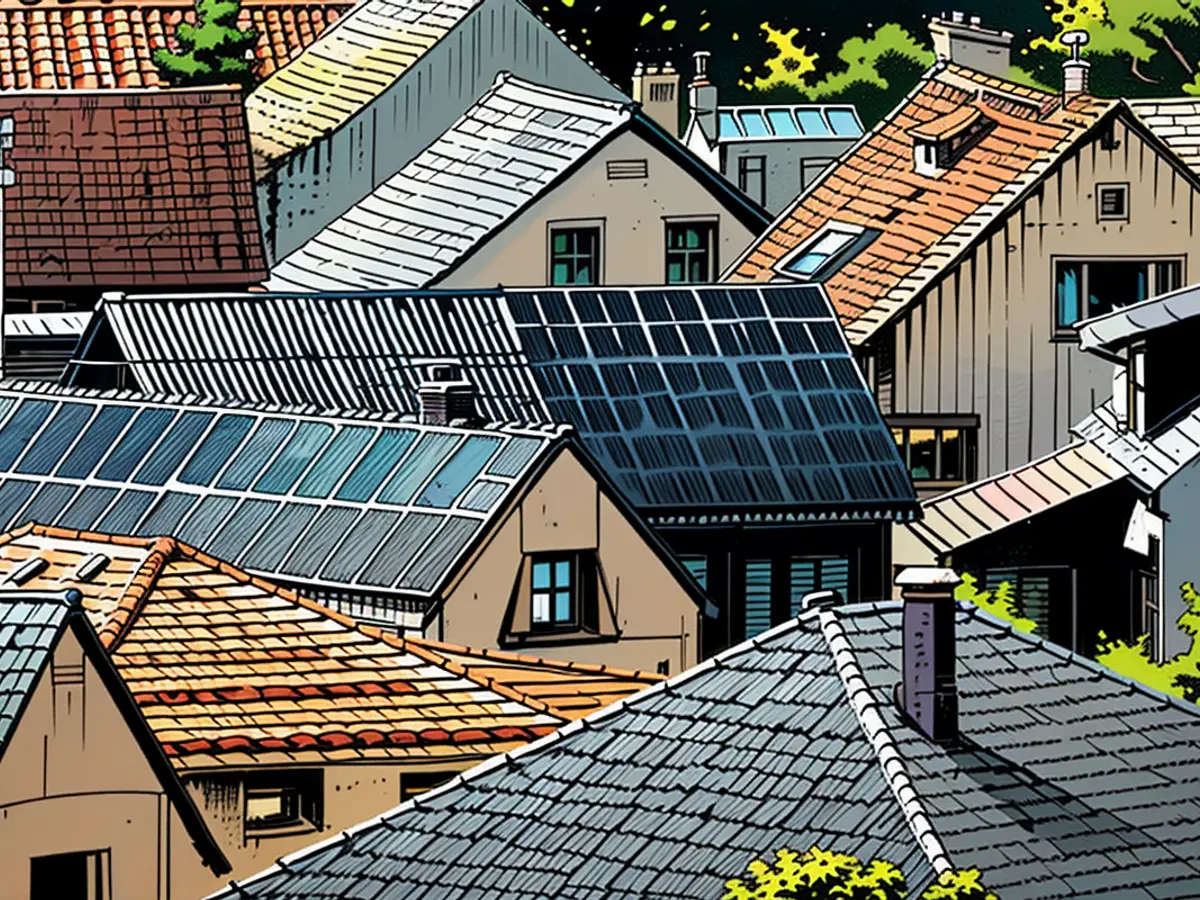- Less bureaucracy to make more housing
Shorter deadlines, fewer reports, and simpler permits: Building Minister Klara Geywitz aims to boost housing construction by streamlining bureaucracy. The SPD politician has now initiated a corresponding reform of the Building Code. In the future, not only will construction be faster and more modern, but the impacts of climate change will also be better considered - for example, by incorporating more green spaces on roofs.
Reducing bureaucracy in planning, permitting, and construction saves time and costs, explained Geywitz. "The amendment is thus also a small stimulus package for the construction industry." The bill is set to be approved by the federal cabinet in September and could pass through the Bundestag by the end of the year.
FDP MP Carina Konrad has already pledged her faction's support to Geywitz. "If the Building Minister enables faster and more cost-effective construction, we fully back her," she emphasized. Only with more and faster construction can there be sustainably affordable housing. The real estate industry also sees promising approaches, but it lacks, for example, special rules for uncomplicated provision of building plots, according to the industry association.
The main planned innovations:
Flexibility for municipalities
Communities should be better able to react to local changes and create building rights more quickly. This could, according to the Ministry of Building, affect the construction of renewable energy facilities - or the conversion of vacant commercial properties in city centers.
Roof extensions
In areas with a tight housing market, it will soon be possible to extend and expand buildings without changing the building plan. This was previously only possible in individual cases and with special justification.
Construction in the second row
Dense construction will be made easier - for example, when there is still room on the parents' property for another house, into which the children with their family can move. Here, cities and municipalities can more easily deviate from building plans.
Protection against conversion to condominiums
A special regulation will be extended until the end of 2027: It allows states to demand special permits for the conversion of a rental apartment into an owner-occupied apartment - but only in areas with a tight housing market.
Deadlines for building plans
It often takes several years for a building plan to be drawn up. In the future, plans should be published within 12 months after the end of the participation procedures as a rule. Outdated building plans should be updated more quickly.
Adaptation to climate change
Communities should prepare for the consequences of climate change. This could include ordering green roofs or infiltration systems on a property. Builders must prove within a certain period that they have implemented offsetting measures, such as planting trees.
Bureaucratic red tape in the building process can significantly delay and increase costs, as pointed out by Minister Klara Geywitz. The proposed reforms aim to alleviate this, potentially serving as an economic boost for the construction industry.
The amendment to the Building Code intends to offer municipalities more flexibility to react quickly to local changes and create building rights more easily, as stated in the main planned innovations.








